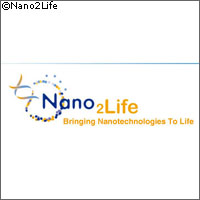Young science writers recognised by Nano2Life Network of Excellence
Three young scientists have won the Nano2Life writing competition, which aims to reward researchers for successfully communicating nanobiotechnology issues to the general public. As science and the communication of science increasingly intertwine, the EU-funded Network of Excellence in nanobiotechnology, Nano2Life, has launched the scientific writing contest to both increase the dissemination of knowledge and make the public more aware of important nanobiotechnology issues. Young scientists were asked to submit articles outlining their particular research area in a way that could appeal to the general public. The winners' articles dealt with cutting-edge research subjects, such as stem cell research, Parkinson's disease, and cells on surfaces. The first prize went to Christer Spegel from the University of Lund, Sweden, for his general description of Parkinson's disease. In 'Cells on surfaces - exploring new environments', Petra Schneider from the University of Kaiserslautern, Germany, won second prize with her observations on cells on spider webs. The third publication, 'Stem Cells Differentiation as A 'Normal' Human Life Line', by Santiago A. Rodriguez-Segui from the Barcelona Science Park in Spain, dealt with the hot topic of stem cells. Nano2Life is an €8.8 million Network of Excellence funded under the EU's Sixth Framework Programme (FP6), which comprises 23 significant European players in the nanobiotechnology field, as well as South Korea, Japan, Australia and North America. A total of 870 scientists work on the project, sharing research activities and foresight analysis.

